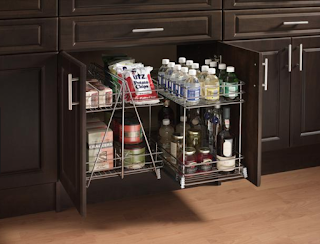Avoiding the “Carryover Effect” at Work…
One of the first dynamics that spouses who work together should attend to is how their marriage carries over into the workplace—and vice versa. Be thoughtful about how your interactions at home may be impacting your interactions at work. Are you spending time at work brooding over an argument from the night before? Or are you spending time at work planning out-of-work activities with your spouse? Of course, this “carryover effect” happens in all relationships, but it’s particularly difficult to avoid when you can re-engage your spouse in a dispute about the trash every time you see him.
Many workplaces have HR regulations that try to avoid these negative effects on the workplace, but it’s just as important to avoid them at home. In the same way you don’t want to spend your workday angry about a dismissive remark from your wife, you don’t want to come home upset about a meeting that she allowed to run too long. Because there’s no HR department to help with this type of carryover, it’s vital that married spouses find ways and develop boundaries to cope with workplace stressors. Try a 30-minute time limit when you get home from work to vent about your day, and strictly prohibit work-talk afterwards. And be intentional about using workplace conflict guidelines to your advantage: let your HR departments/regulations help you sort through workplace issues—that’s what they’re for, after all. And don’t develop the habit of relying on a second-round of argument once you get home.
This latter example of using workplace conflict resolution guidelines also helps to illustrate the effects that spousal arrangements can have on your colleagues and on the workplace in general. Indeed, these considerations are a primary reason why many workplaces explicitly prohibit employee-employee relationships or relationships between superiors and subordinates. Even though healthy relationships can internally weather home-versus-work conflicts, your coworkers may not be so sanguine. They often suspect spouses of receiving special treatment from their spousal superiors—whether concretely in the form of raises, or simply in terms of continuing a workplace discussion at home where coworkers cannot offer their opinion.
For these reasons, it’s essential that spousal coworkers, especially in superior-subordinate roles, go by the book at work. Avoid conversations about your relationship, don’t use pet names that are common at home, and try not to have—let alone mention!—conversations you might’ve had at dinner in which a workplace decision got made. And be proactive: be visible about using professional guidelines at work. If you have to make a decision about your husband’s raise or promotion, make sure you rely on your own colleagues to help make the decision. Not only does it help you maintain objectivity, but other colleagues will know (and make it known) that you didn’t play favorites.
Just as it’s important to be able to listen to criticism from your partner, involving your coworkers in your partnership means you’re going to have to be able to take criticism from them, too. So, don’t be like Clark and Martha on The Americans, forced to hide the relationship from everyone. Be open with your staff about you and your spouse’s relationship, and let them know that you understand perceptions about spouses in the workplace and that you’re going to take proactive measures to address those perceptions. And if your coworkers feel shut out or like they’re not on equal footing with spouses, you have to be open to hearing that—and to letting them know that you want to hear it.
Workplace spousal arrangements are difficult, but for couples who can make it work, they can be among the most fulfilling relationships there are. But given how unorthodox the conflicts and stress management can be, a lot of couples need a little help from a therapeutic friend to get off on the right foot. So, as in other workplace issues, be proactive here, too: seek out a relationship therapist who may also specialize in workplace conflicts as early as you can. This can help you avoid developing bad habits that not only have ramifications for you and your partner, but for everyone you work with.
…and at Home
Many workplaces have HR regulations that try to avoid these negative effects on the workplace, but it’s just as important to avoid them at home. In the same way you don’t want to spend your workday angry about a dismissive remark from your wife, you don’t want to come home upset about a meeting that she allowed to run too long. Because there’s no HR department to help with this type of carryover, it’s vital that married spouses find ways and develop boundaries to cope with workplace stressors. Try a 30-minute time limit when you get home from work to vent about your day, and strictly prohibit work-talk afterwards. And be intentional about using workplace conflict guidelines to your advantage: let your HR departments/regulations help you sort through workplace issues—that’s what they’re for, after all. And don’t develop the habit of relying on a second-round of argument once you get home.
Healthy Workplaces
This latter example of using workplace conflict resolution guidelines also helps to illustrate the effects that spousal arrangements can have on your colleagues and on the workplace in general. Indeed, these considerations are a primary reason why many workplaces explicitly prohibit employee-employee relationships or relationships between superiors and subordinates. Even though healthy relationships can internally weather home-versus-work conflicts, your coworkers may not be so sanguine. They often suspect spouses of receiving special treatment from their spousal superiors—whether concretely in the form of raises, or simply in terms of continuing a workplace discussion at home where coworkers cannot offer their opinion.
For these reasons, it’s essential that spousal coworkers, especially in superior-subordinate roles, go by the book at work. Avoid conversations about your relationship, don’t use pet names that are common at home, and try not to have—let alone mention!—conversations you might’ve had at dinner in which a workplace decision got made. And be proactive: be visible about using professional guidelines at work. If you have to make a decision about your husband’s raise or promotion, make sure you rely on your own colleagues to help make the decision. Not only does it help you maintain objectivity, but other colleagues will know (and make it known) that you didn’t play favorites.
Criticism and Therapy are Your Friends
Just as it’s important to be able to listen to criticism from your partner, involving your coworkers in your partnership means you’re going to have to be able to take criticism from them, too. So, don’t be like Clark and Martha on The Americans, forced to hide the relationship from everyone. Be open with your staff about you and your spouse’s relationship, and let them know that you understand perceptions about spouses in the workplace and that you’re going to take proactive measures to address those perceptions. And if your coworkers feel shut out or like they’re not on equal footing with spouses, you have to be open to hearing that—and to letting them know that you want to hear it.
Workplace spousal arrangements are difficult, but for couples who can make it work, they can be among the most fulfilling relationships there are. But given how unorthodox the conflicts and stress management can be, a lot of couples need a little help from a therapeutic friend to get off on the right foot. So, as in other workplace issues, be proactive here, too: seek out a relationship therapist who may also specialize in workplace conflicts as early as you can. This can help you avoid developing bad habits that not only have ramifications for you and your partner, but for everyone you work with.

